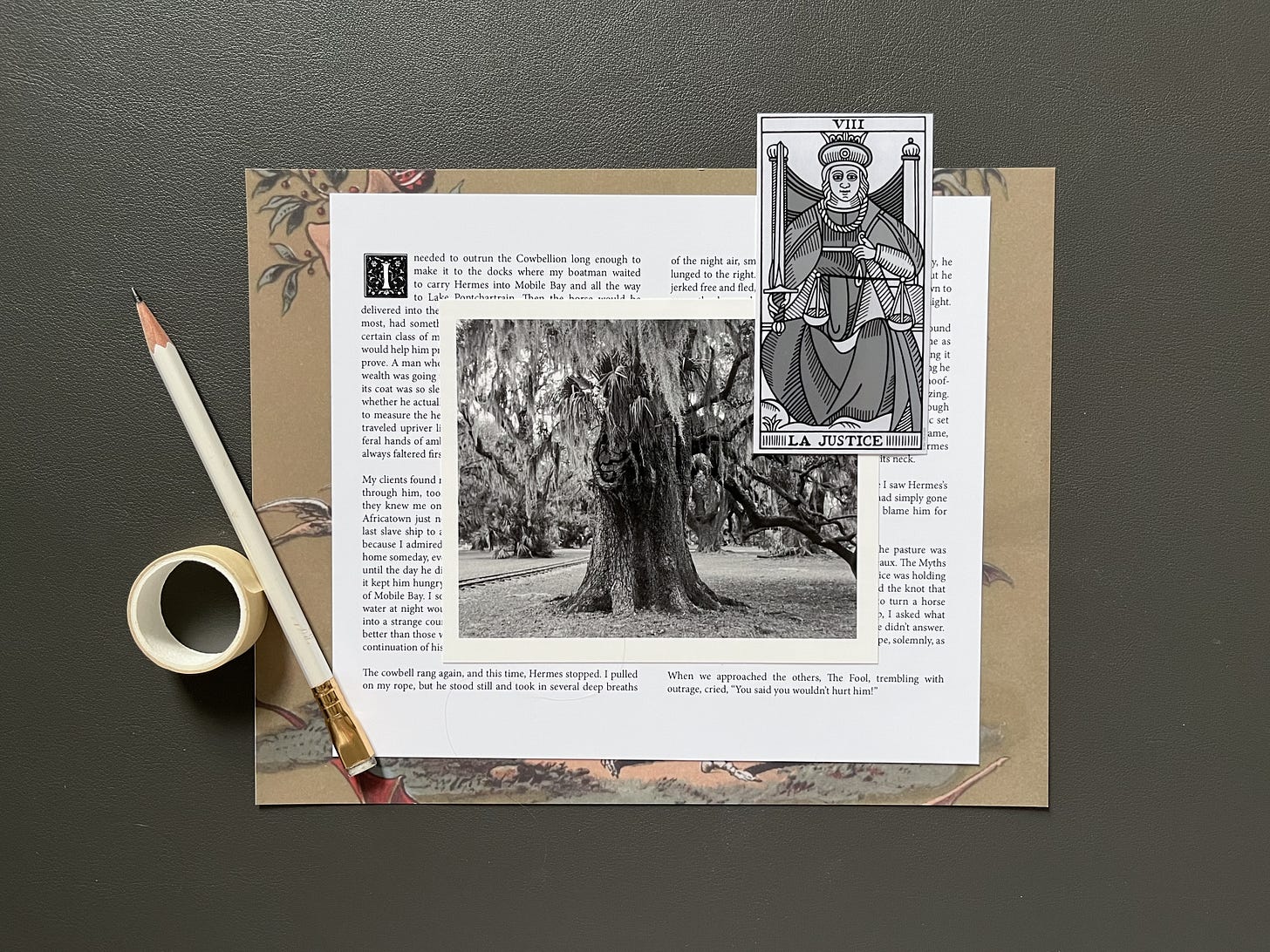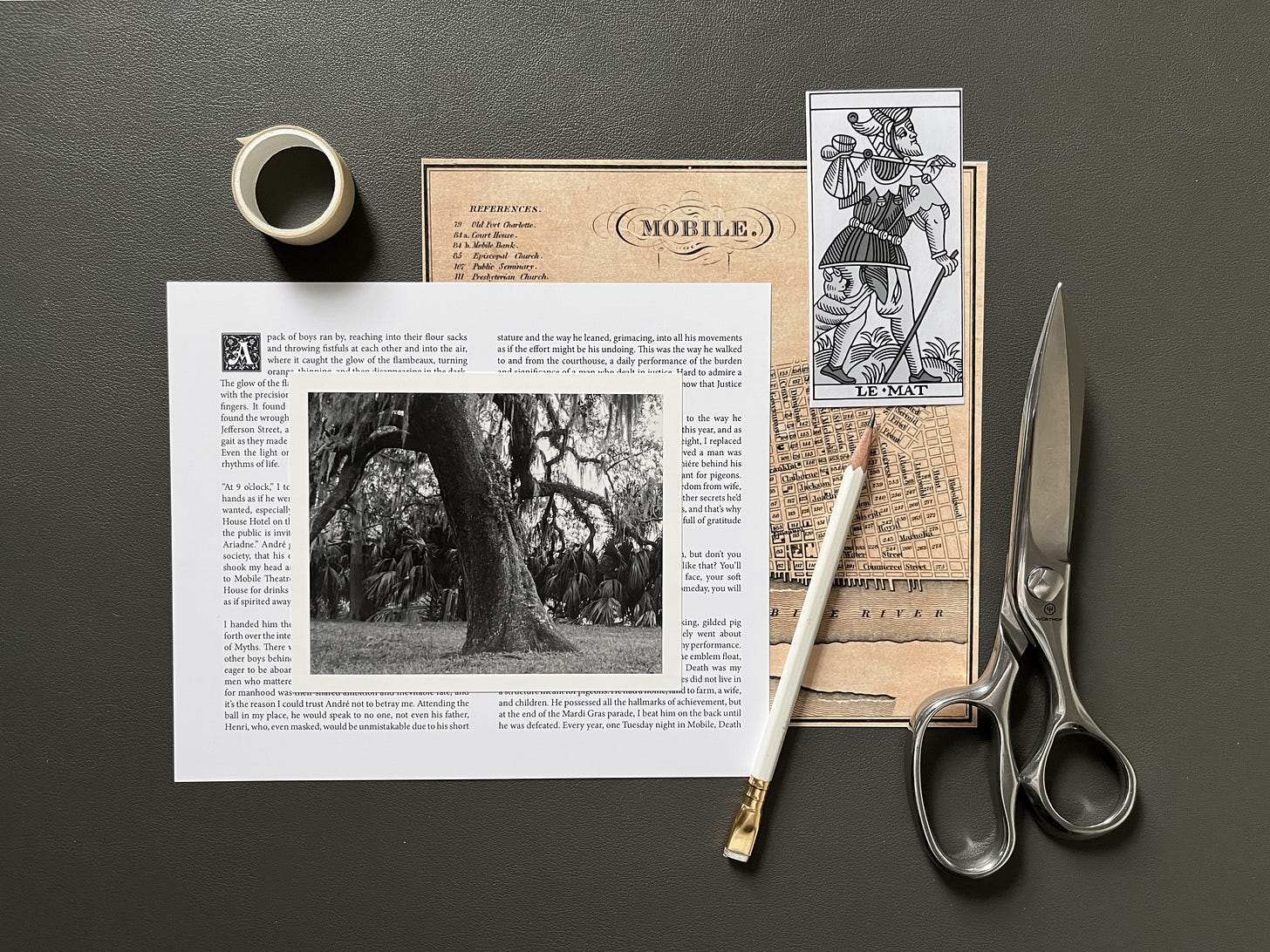I remember the first time I saw the family bible. I was about 13 years old. My great-aunt Mary Stewart had sent it off to be rebound, and it had come back just in time for a family gathering.
For those of you not familiar with the tradition, a family bible serves a purpose outside of its obvious spiritual one, providing a place to record marriages, births, and passings. These records are handwritten–by unknown hands and often in strikingly beautiful script. Some are detailed, and some are brief. Some shed light on the past; others bring up more questions than they answer. Our bible dates back to the 1700s.
That day, our family gathered around the dining room table where the bible sat as my grandfather flipped through its pages, stopping every now and then to read an entry. One captured my attention in a way none of the others had.
“Felix Saxon departed this life the 9th of October, a Tuesday 1860 in Mobile of Alabama. His death was caused by a fall from a tree. He died in six hours after he fell. He never spoke after he fell. He cried to god to save him when he was hanging on the tree.”
“Oh,” my grandfather said. “That must have been the horse thief.”
I looked around the room to see if everyone was as shocked as I was. Leah’s eyes were wide, but the adults were all just nodding. “Yes, that must have been him.”
And that’s all we ever heard about the horse thief.
I like to visualize our family stories as prayer flags on a mountain. The older the flag, the more torn and tattered the threads. The older the story, the more worn the truth, lost to time. Eventually only fragments remain. This project is an act of sewing together the threads. But what happens when you have just a little fabric left to work with? Will it be enough?
Tuesday in Mobile, our latest publication, is a story about a horse thief, but we know so little about the horse thief in our family history that we can’t really call it his story, only one he inspired, one we dreamed up just like when we were kids sitting at the dining room table letting our imaginations run wild.
And our imaginations did run wild. At nearly every opportunity, we chose fiction even when we knew the truth. For example, Felix Saxon died in October, but our story takes place on Mardi Gras because it happened on a Tuesday in Mobile, the birthplace of Mardi Gras. Mardi Gras (and all things New Orleans) has always been a fascination for both of us. How could we ignore its connection to Mobile? Maybe knowing so little about Saxon gave us more freedom, instead of less, in imagining his story.
In Dark Water Lavender, the words and pictures are closely linked, which reflects the way we pieced them together like a puzzle, working alongside one another in a back-and-forth collaboration. It would be nearly impossible to have the same process for creating this book. For one thing, Saxon’s world is more completely erased than the world of Dark Water Lavender. We have no shared memories of it. This meant that the project would naturally be more narrative than our last one, and my images would be more metaphorical. So this time, we worked alone, and then came together with our own interpretation of the story. While Leah focused on connections between Felix and early Mardi Gras traditions in Mobile, I focused on the tree as a character.
Every time I imagined the tree, only one came to mind: a southern live oak. A live oak can live for over 500 years, and when I think about that kind of life span, it fills me with awe. The oldest grove of live oaks in the world is located in City Park, New Orleans. So, I spent a cloudy, chilly winter’s day there.
As I walked through the grove, I thought about how much change the trees had witnessed, the children who had climbed their branches, and the suffering they must have seen. Although it’s unlikely, it’s possible that the tree Felix hung from is still alive somewhere in Mobile. Just like that tree, his story could survive us, too, even though there’s very little left of it. But the fact that families still record birthdates and weddings even though these details reveal so little proves that even the smallest details mean something to us. In fact, they mean so much we keep them in our most sacred book. No matter how little we know about him, Felix Saxon deserves to be remembered.
Tuesday in Mobile is available for preorder today! Limited to 25 copies and 5 artist editions, the book is estimated to ship by the end of March. Click here for more info.






You guys are such a huge source of inspiration for a way of thinkign about memories, really interested to see the results of this book!